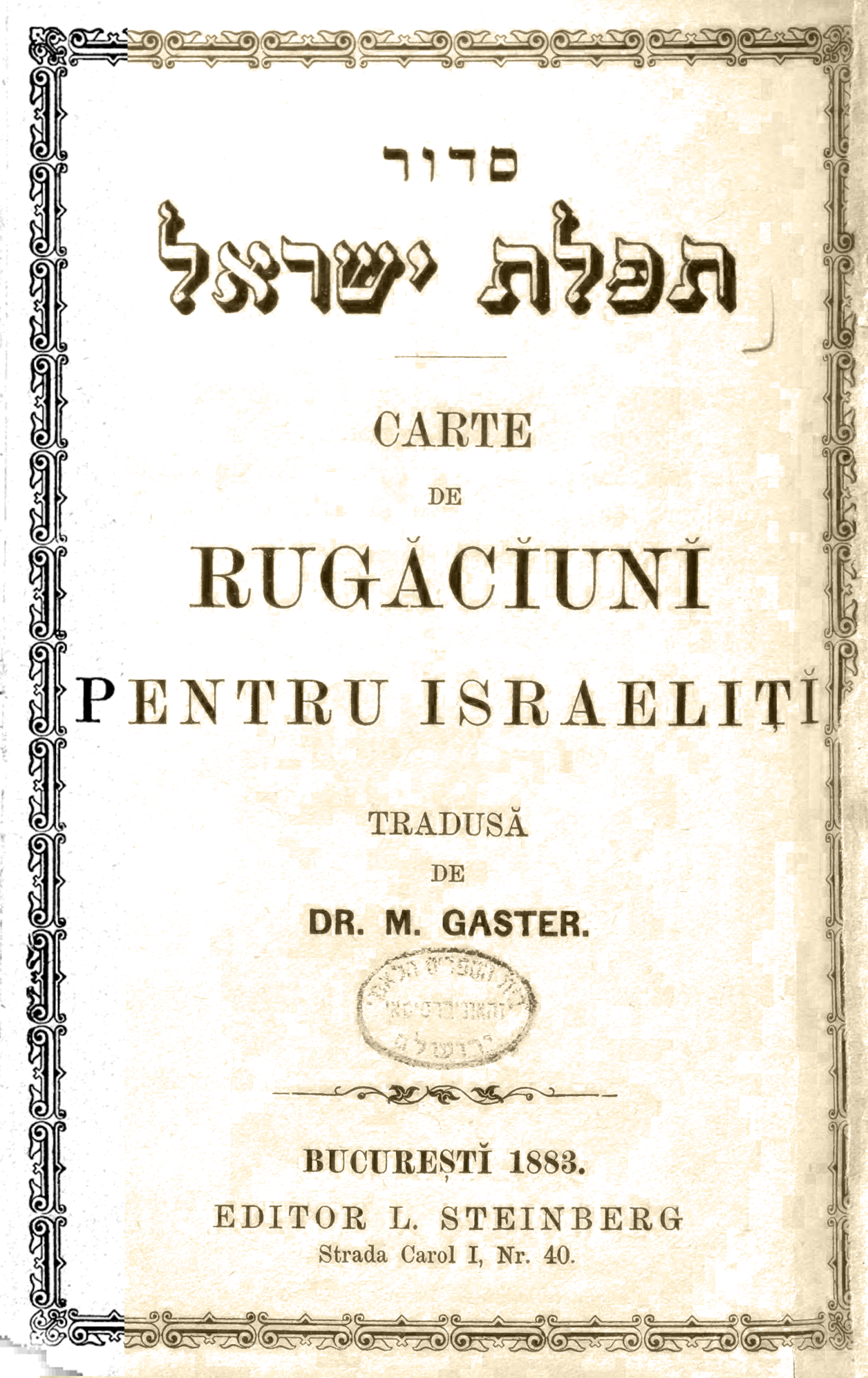Contributor(s): Shared on: 24 June 2022 under the Creative Commons Zero (CC 0) Universal license a Public Domain dedication Categories: Tags: תפלת ישראל (Tefilat Yisrael) A Brief Jewish Ritual (Women of Miẓpah 1921) is a small ritual guide containing hymns and prayers intended for use by Jewish women. It was prepared by Angie Irma Cohon for the sisterhood she organized at Temple Miẓpah in Chicago. This work is in the Public Domain due to its having been published more than 95 years ago. This work was scanned by Aharon Varady for the Open Siddur Project from a volume held in the collection of the HUC Klau Library, Cincinnati, Ohio. (Thank you!) This work is cross-posted to the Internet Archive, as a repository for our transcription efforts.
TABLE OF CONTENTS Morning Prayer:
For Children
For Adults Evening Prayer
Grace before and after Meals Special Benedictions:
For food
For escape from evil
For joyous occasion Private Prayer in Time of Joy
Private Prayer in Time of Grief Jewish Calendar:
Jewish Holidays
Months of Hebrew Calendar Service for Sabbath Eve
Evening Service for Festivals
Service for Chanukah
Sabbath Hymn
Hymn for Shabuoth
Hymn for Rosh Hashana
Hymn for Yom Kippur
Hymn for Succoth
Hymn for Chanukah
Hymn for Purim
En Kelohenu
Adon Olam
Israel’s Watchword—The Sh’ma
The Ten Commandments
Code of Holiness
 Angie Irma Cohon (née Reinhart, 1890-1991) was a Jewish author, poet, translator, and educator. Born to parents J.F. and Amelia (Marks) Reinhart in 1890, Cohon lived in Portland, Oregon until moving to Ohio at 19 to attend Hebrew Union College. She transferred to the University of Cincinnati, earning a bachelors degree in 1912. On June 12 of the same year she graduated, Cohon married Rabbi Samuel S. Cohon. In Chicago, they ran Temple Mizpah, with A. Irma Cohon organizing the sisterhood (Women of Mizpah) and the synagogue's religious school. A prayer pamphlet she prepared, A Brief Jewish Ritual, was published by Women of Mizpah in 1921. Cohon is best known for her contributions to the field of Jewish music in the English language. The National Council on Jewish Women published Introduction to Jewish Music in Eight Illustrated Lectures, with a second edition coming out in 1923. This work became a basis for the Council's study of music for nearly 30 years. She collaborated with Abraham Zevi Idelsohn on Harvest Festivals, A Children’s Succoth Celebration (1925). Founded in 1919, Women of Miẓpah was the sisterhood organization of Temple Mizpah, the first Reform congregation in Rogers Park, Chicago, Illinois, led by Angie Irma Cohon. (Her husband, Rabbi Samuel S. Cohon, was the spiritual leader of the Temple.) The name is derived from the place name given in Genesis 31 in the context of Yaaqov leaving the settlement of Lavan, with Lavan recognizing the independence of his daughters in Genesis 31:43. Other Jewish women's sisterhoods have used this name including at Hebrew Union College, in Cincinnati, Ohio. Aharon Varady, founding director of the Open Siddur Project, is a copyright researcher and amateur book scanner. He prepares digital images and new digital editions of prayer books and related works in the Public Domain in order to make their constituent parts (prayers, translations, annotations, etc.) publicly accessible for collaborative transcription by project volunteers. (In some cases, he finds existing digital editions prepared by others that require correction and reformatting.) If you appreciate his efforts, please send him a kind note or contribute to his patreon account. Read a comment / Leave a comment (moderated) Works of related interest: |












Leave a Reply